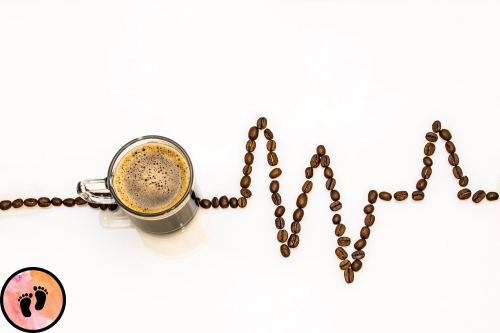Can you drink Coffee During Pregnancy?
You will get many cravings during the pregnancy, coffee is one of them? Are you a coffee lover? Want to start every day with coffee? Then you should keep a check on that if you are pregnant.
 Coffee during Pregnancy
Coffee during PregnancyCoffee does much to your body. It not only reduces your tiredness but also keeps you awake. It is ok when it is in a limit but too much caffeine stimulates the brain and increases the confusion. After a while, it leads to an increase in blood pressure, heartburn, irritability, headache.
Will it affect my Baby?
Drinking coffee now or later is fine, but consuming more caffeine is harmful to the baby.
Firstly, the sugar substituted in these is not suitable for the baby’s health.
Secondly, when you consume caffeine, it crosses the placenta and reaches the baby. As your metabolites are well developed and mature, it can metabolize quickly. However, the baby’s metabolites are still growing; they cannot fully metabolize.
How much is too much?
You can consume up to 200 mg of caffeine in a day that means a cup of filter coffee or two cups of instant coffee. Consuming more than that leads to various health issues for your baby like
- Miscarriage
- Cardiovascular disease
- Diabetes type 2
- Obesity or overweight
- Growth retardation
- Anemia
- Carcinogenic
The daily limit of 200 mg include all caffeine products likes chocolates, yup you can get a lot of cravings for hot chocolate or chocolate milkshakes, but these products include more caffeine.
You can also try a tea like green tea, iced tea but again in limits. These contain the right amount of antioxidants, which is good for health but not in large amounts. Decaffeinated coffee is also a bit better to drink. Even though it is still a caffeinated drink, it also contains fluid so it can give you proper hydration.
Consuming caffeine also increases blood pressure and heart rate, which is not healthy during pregnancy. It also increases the urination frequency and reduction of fluids in the body, which can result in dehydration. It brings changes in sleeping patterns of baby and the mother, which might make you both stay awake for long.
What does Research say?
Many kinds of research have been conducted on caffeine consumption during pregnancy. Every study concluded that limiting the consumption of caffeine is better.
1. According to the research conducted by Norwegian institutes of public health, 50 out of 943 pregnant women had overweight childbirth.

2. A childhood leukaemia international consortium study (CLIC) conducted research which shows 444 cases which are resulted in acute myeloid leukaemia in childbirth due to overconsumption of coffee or tea during pregnancy.

3. Nutrition for the just born baby is essential for their health and development. A study conducted by Swiss medical showed the maternal caffeine resulting in adverse effects on breastfeeding the child.

What are My Alternatives?
Well, quitting a habit is not an easy task, but you can try a few tricks to replace it.
1) Firstly start with shifting to Espresso for a few days. It can help to withdraw your symptoms.
2) Try fresh juices and smoothies, mostly without caffeine. This provides sweetness taste and nutrition at the same time.
3) A cup of hot water with lemon and honey will also do the thing. It is a comforting drink. It calms the body and is suitable for the digestive system, skin, and heart.
4) Coconut water is also another refreshing drink you can try instead of caffeine. It has numerous benefits like improves the immune system, maintain Ph balance, and keep your kidney healthy.
5) Due to sudden quitting, coffee can also result in mood swings. So try hot cacao. Don't get excited. It isn't your regular sugar-coated hot chocolate. It uses raw cacao, which contains magnesium. This will boost your mood.
6) Include more dry fruits and fibre vegetables or fruits which can help to increase your body nutrition.
If you consumed caffeine without knowledge then try to balance it with hydrating your body with a lot of other fluids.
Mostly try to avoid the caffeine as much as possible. The less the caffeine, the better the baby. Also, don’t hesitate to consult a doctor for any queries about caffeine intake or any other related issues.
Recent Posts
Homemade Pregnancy Test
How to Prevent Pregnancy Stretch Marks
Is It Safe to Eat Ice Cream During Pregnancy
Breast Pain in Pregnancy
7 Tips to getting pregnant faster
COMMON INFECTIONS DURING PREGNANCY
Pregnancy Diet: Apples during Pregnancy
Advertisement
Duis leo. Donec orci lectus, aliquam ut, faucibus non
Join Our Community of Expecting Parents Today!
Subscribe to get updated on latest and relevant pregnancy-related details